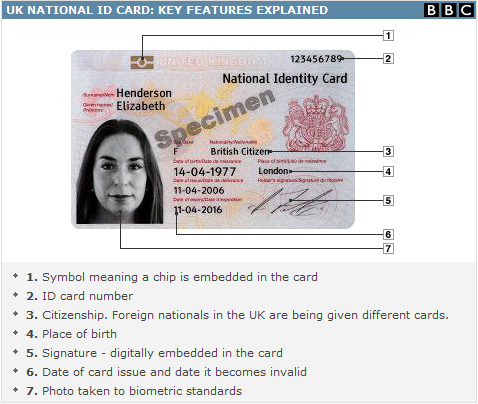£10bn national ID card scheme vs. £65m cuts in higher education

Two very controversial topics met in the middle today, when one potentially pointless national identity card scheme which would cost the UK taxpayer between £10-20bn according to the London School of Economics, and a cut of £65m in higher education at university level would cut a further 1,500 full time lecturing and support staff.
Even though the two stories are entirely unconnected, caused by decisions in two separate UK government departments, it has nonetheless sparked anger with union leaders.
Wes Streeting, president of the National Union of Students, spoke to me earlier on:
"Given the huge pressures on public finances in the midst of this recession, we understand that government must make difficult choices about spending priorities. But the fact that the government is pressing ahead with non-essential and expensive projects like ID cards while university teaching budgets are being cut would suggest that the government hasn't got its priorities right."
The Home Secretary pushed ahead with the scheme, which is supposed to offer fraud protection and another tool to fight the war on terror, but opposition leaders say it is money spent which the UK cannot afford. Even though the cost of the card will "even out" as the cards are paid for by citizens, the amount of taxpayer investment into the project and the fact that the cards will not be compulsory has sparked even more anger.
Dave Page, spokesperson for No2ID, a pressure group designed to counteract the plans said:
"Once you are on that database, you can never come off it. From the moment you're registered you'll have to tell the authorities of any change in your circumstances for the rest of your life - and pay whatever fees they ask for the 'service'.
You'll never know who's looking at your details. It won't protect our safety. It won't be convenient - except for Whitehall. This scheme is an expensive and dangerous con."
The BBC provided an example card which shows the final design for the non-compulsory identity card. To see the full-sized image including the back of the card, follow the link on the image.
It seems the UK is the only country that is really pushing for identity cards. The only national identity card in the US is in form of a passport. There have been plans to roll out separate identity cards but the "plans are unlikely to pass because states view the proposal of a national ID card as an infringement on their state rights".
With the Real ID Act 2005 introducing a national ID card controversy for the US, many are against the scheme. So far, nineteen states have rejected the idea throwing the scheme close to failing. After speaking to my friend, Bryant Zadegan, he believes (paraphrasing) that more states will reject it causing the Obama administration to try and pigeonhole the idea, if not already.
Australia is in a similar situation in that people mostly seem to oppose a national ID card. After speaking to a recently graduated Australian student, most people have some form of high-value identification with them anyway and claim their right to privacy.
Going back to the point about university teaching cuts, the fact of the matter is simple. Around £10-20bn has or will be spent on a national ID card scheme which isn't even compulsory, yet England's universities will face massive cutbacks on teaching staff because the Department for Business, Innovation and Skills needs to save money.
The chief executive of Universities UK, Diana Warwick, said:
"We said back in May, when the secretary of state first outlined this £65m cut, that this was a blow to institutions, not least in that the detail of the institutional allocation would not be available until now, so late in the year. This has made planning for the year ahead, 2009-10, all the more difficult in what is already a very challenging financial climate."
But at the same time, the government announced that it will be opening up an extra 10,000 places for prospective students, but won't be able to fund them because of the mentioned cutbacks. The "priority course" areas include technology and computer science, but the equipment isn't the be-all and end-all - the teaching staff and lecturers are.
Is it just me, or does any of this simply not add up? "We'll cut your funding but we'll give you more places. And we cut your funding so we can invest in pointless schemes which won't actually have any benefit."
The world, or at least the UK, has gone utterly stark raving mad.
